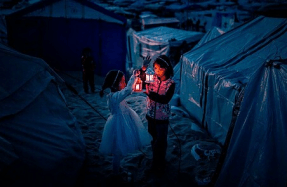
When we reach the dirt road leading to Drax Hall plantation, Esther Phillips suggests we stop the car. Phillips, 73, gets out and draws in a deep breath. There’s a faint, sweet smell of something akin to rum out here, about eight miles from the capital city. The dried remains of sugarcane, burned then harvested, flank the road.
This is about as close as she can get.
Drax Hall, a Barbados plantation where sugar has been reaped for nearly four centuries, was for so long just an ordinary part of what Phillips understood as her wholesome childhood. She grew up nearby, skipping across the grounds to school. She remembers gathering milk from cows here, hearing stories about a relative working in the big house, caring for the child referred to as the Young Missy. She remembers her grandfather overseeing a crew of women in the plantation’s Negro (or another N word) yard. Built in the early 1650s, Drax Hall is believed to be the oldest Jacobean structure in the western hemisphere. And it’s here that enslaved Black labor and, later, people existing somewhere between slavery and freedom, did the dangerous work to make others sugar-rich.
But Phillips, the island’s first poet laureate, now describes herself as persona non grata here, something she came to believe after a conversation with a staff member when she called to request access. Road signs describing the property as private appeared around that time too, she says. Her apparent offense: In late 2021, with part of the hall in the frame, Phillips read from what she calls her Plantation Poems for a British TV crew. In spare, evocative language, they explore Phillips’ dawning factual and emotional understanding. Drax Hall—which now belongs to Richard Drax, a Conservative member of the British Parliament and part of an unbroken family line of Drax Hall heirs—was the site of untold horrors. Her island home is a place where mass production with enslaved labor was so optimized for profit that the brutal, local way was exported to other colonies.
Like Phillips, people here, and all over this region, have become increasingly insistent that apologies with meaningful recompense are overdue.
The idea that people held captive and robbed of their labor are owed reparations has been discussed by enslaved people for centuries. It shows up in 17th century Barbados court cases filed by the few who wrestled their way to freedom, says Sir Hilary Beckles, a Barbados-born historian and author of The idea also occupies space in a 1775 essay by the colonial American political theorist Thomas






